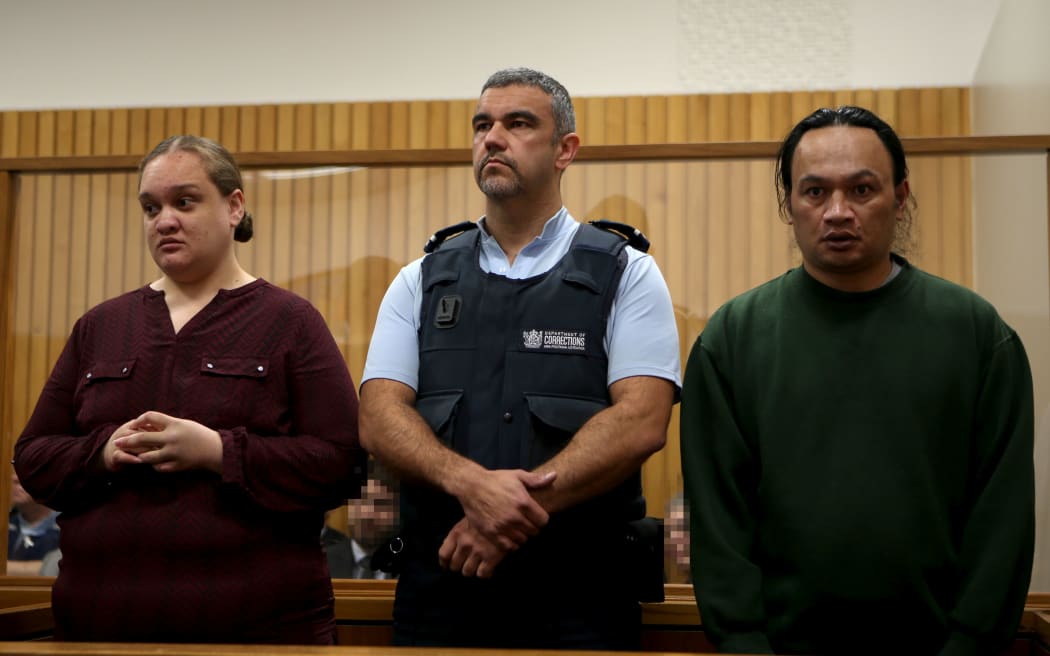The mother of three-year-old Moko Rangitoheriri says she learned one of her son's killers had a long list of criminal convictions only yesterday, when it was revealed in the media.

From left, Tania Shailer, a court officer and David William Haerewa during sentencing last month at the High Court in Rotorua. Photo: FAIRFAX NZ
Nicola Dally-Paki paid Tania Shailer and David Haerewa to look after her son between June and August last year while she was at Starship hospital with another of her children.
The couple bashed and kicked the boy to death and were last week sentenced to 17 years in prison for manslaughter.
Court documents released yesterday show Haerewa has 109 previous convictions, including for domestic violence and aggravated robbery.
Ms Paki's lawyer, Arama Ngapo-Lipscombe, said her client knew nothing about Haerewa's violent past and did not even know he was living at the house with her son.
"My client assisted Tania financially, sent money to her, kept contact with her on a daily basis. She also had used Skype and Facebook to actually see the children.
"It wasn't up until about two weeks before this horrific offending reached its highest point that she became concerned.
"That's when she started making more and more contact with Tania and that was virtually shut down."
Shailer and Haerewa were sentenced last month to 17 years in prison, with a minimum non-parole period of nine years, after admitting to manslaughter charges.
Ms Ngapo-Lipscombe said her client knew Shailer as a kōhanga teacher who had cared for her children and many other children over the years.
The Crown had opposed the pair's criminal histories being released, arguing they were not relevant at sentencing and to protect the pair's privacy.
Justice Katz concluded the pair's previous convictions were not relevant at sentencing but ruled the media was entitled to test that finding, and the convictions were entered in open court.
She also concluded there was strong public interest in the case, and the extra details should be revealed in the interests of open justice.




